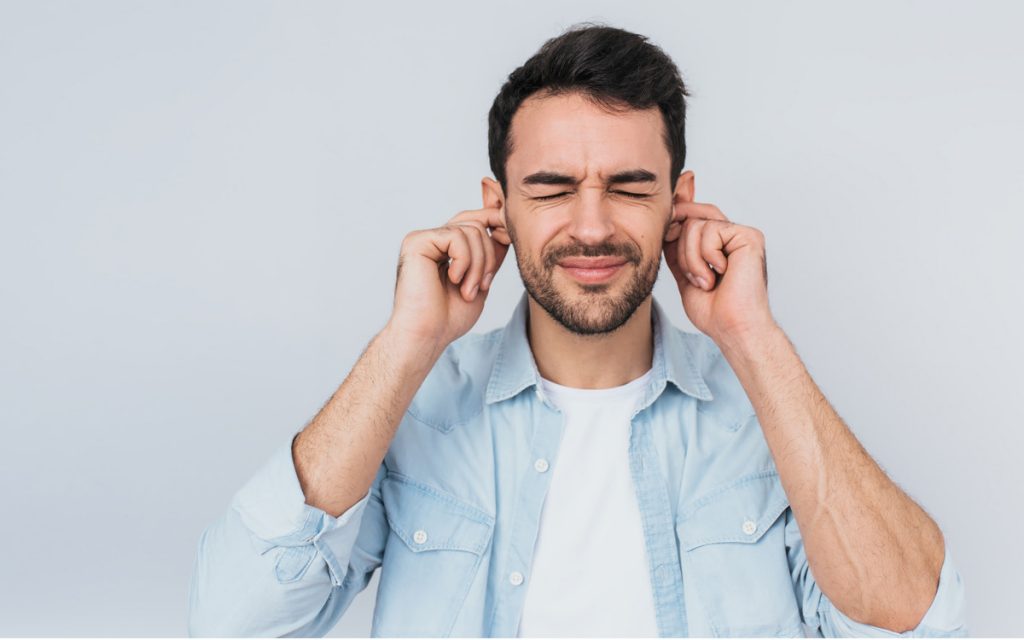Earwax serves a function. It protects your ears from dust, water, fungus, bacteria, and insects. But you can definitely have too much of a good thing. Here’s what to do if you have too much ear wax.
What causes excessive ear wax?
Overproduction of ear wax can cause hearing impairment or ringing of the ears. Studies have suggested that anywhere between 7% and 35% of people deal with this. More solid numbers are unknown.
If you have excessive ear wax that’s getting out of control, you’ll likely find the cause below.
1. Lack of ear wax
Wait! That’s completely contradictory.
It is, but it’s true. There are many places on your body where you produce more of something because there is too little.
Over-washing your face or hair increases oil production. In the same way, your ears will overproduce wax if your body senses there is too little. This imbalance normally happens when people start using cotton swabs to clean their ears out.
The more they use them, the more they need them because the wax glands produce excessive ear wax to replace what they took away.
Only clean excess wax around the outside of the ear canal.
2. Narrow canals
Ear canals may narrow in a person who has had many ear infections. It’s the ear’s way of trying to protect itself. In addition, it will produce more wax to prevent more bacteria from entering the ear.
People who have more hair growth in their ears will have narrower canals, making wax more noticeable.
3. Blockages
Some people have ear canal blockages that may be composed of:
- Extra skin
- Overproduction of skin cells
- Bone abnormalities from birth or head trauma
These blockages may trigger your wax glands to produce more wax in an attempt to remove the blockage.
4. Trapped water
If water is trapped in your ear after a day of fun in a resort swimming pool with the grandkids, your body responds by producing more wax to carry the water out of the ear. If the wax is left undisturbed on its journey, usually it will be able to transport the water to the surface where it can evaporate.
5. Normal aging
As a person ages, they may encounter episodes of too little wax followed by too much.
6. Putting things in your ears
There are a few items that are meant to go into your ears. These include:
- Earplugs to protect your hearing or keep water out.
- Hearing aids to help you hear.
In these cases, the benefits may outweigh the risks. But your ears don’t know the difference between helpful things in your ears and harmful ones. They may produce extra wax to try to push them out.
How to handle excessive ear wax
There are safe methods to remove extra wax at home but if you do have excess wax, you should consider seeing a hearing specialist to make sure you don’t have any dangerous blockages or other issues that need to be addressed. Sometimes, hearing loss can give you a similar “clogged up” sensation to an ear wax blockage.
Things never to do when cleaning earwax
- Stick cotton swabs, rolled up toilet paper, pencils or pens in your ear. This will push dirty, old wax back into your ear, driving the skin cells, bacteria, dirt, etc. back against the eardrum. Earwax is supposed to continually move out of the ears not back into them.
- Use Ear Candling…Holding an open flame near your ear or hair is a very bad idea and is unsafe.
Instead, try the following:
- Take your hearing aids out periodically. After washing your hands, wipe off excess ear wax. Check to make sure the tubes aren’t blocked if you have a behind-the-ear. You may need to do this a couple of times a day, but it’s a small price to pay for being able to hear your toddler grandson say his first words or enjoy a morning bird song while sitting on your porch.
- Don’t sleep with your hearing aids in your ear. Give your ears a break.
- Clean the outside of the ear with mineral oil. This helps draw the wax out and prevents earwax blockages. If you have a parent who is of an advanced age, this is very important for their health and wellbeing.
- Ear Irrigation – You can do this at home with an irrigation kit. But ideally, it should be done by a trained hearing professional to reduce the risk of infection, perforated eardrum, or other issues.
- Schedule a routine cleaning every 6-12 months to reduce the annoyance of extra wax year-round. These are simple, non-invasive, and well-worthwhile procedures.
- Get your hearing tested. Hearing loss can sometimes feel like your ear is blocked up. If you’ve had this sensation for a long time, you should have your hearing evaluated.
Hear better and feel better without the excessive ear wax.



